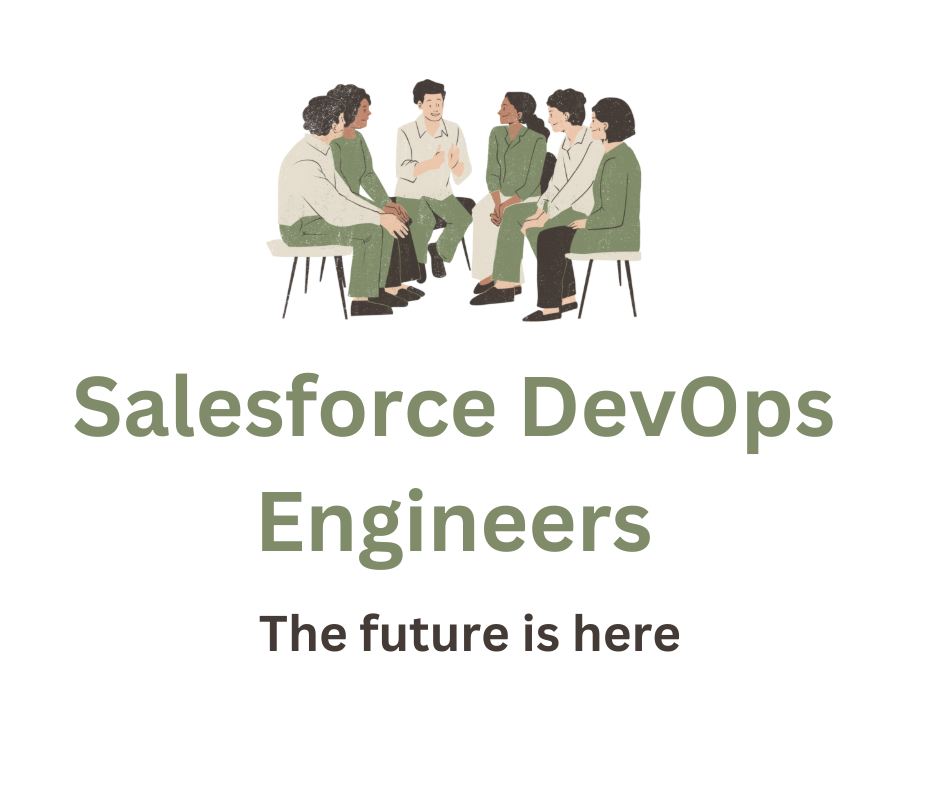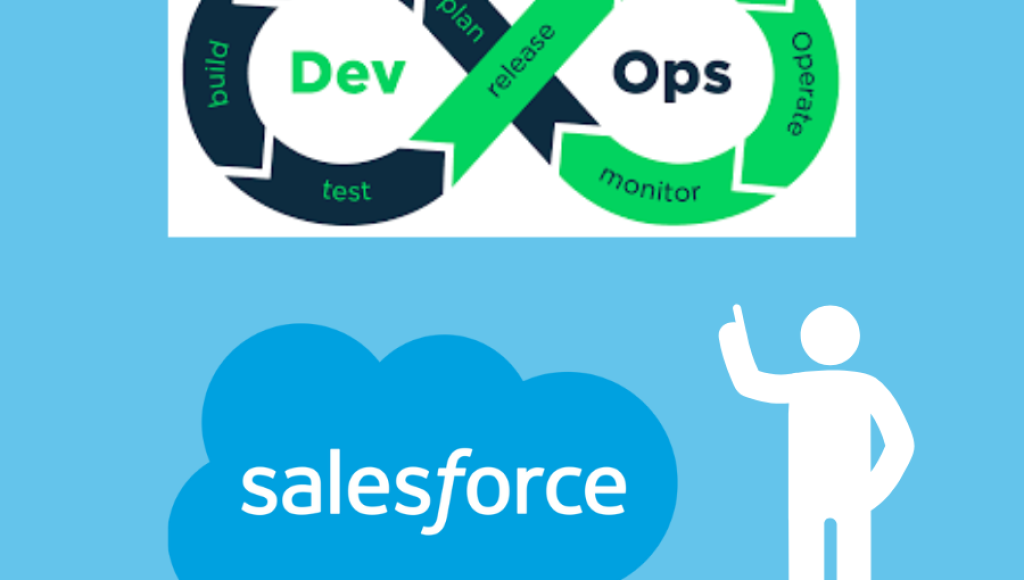The rapid evolution of Salesforce DevOps is reshaping how organizations approach application development and management, fusing the principles of development and operations into a cohesive and transformative methodology. This paradigm shift has not only simplified the delivery and management of Salesforce applications but has also become a cornerstone for organizations looking to maximize the value of their Salesforce investments.
Salesforce DevOps represents a departure from traditional software development lifecycles, introducing automation and integration as its core tenets. By utilizing automation tools and practices, organizations can eliminate manual and repetitive tasks, such as deployments and testing, reducing errors and expediting the release cycle.
At its essence, a Salesforce DevOps engineer acts as the orchestrator, aligning the efforts of developers, administrators, and other stakeholders through integrated workflows and seamless communication channels. This collaborative approach promotes cross-functional teamwork, improves efficiency, and ensures a cohesive development process.
Decoding Salesforce DevOps: A Holistic Approach
Salesforce DevOps takes a holistic approach to software development and operations, aiming to streamline the delivery, management, and optimization of Salesforce applications. Its impact extends beyond accelerated delivery; it enhances collaboration between teams, fostering a culture of continuous improvement and innovation.
The three pillars of Salesforce DevOps trends—automation, integration, and delivery—lay the foundation for its transformative capabilities. Let’s delve into each of these pillars.
1. Automation: Elevating Efficiency and Reliability
Automation is the linchpin of Salesforce DevOps, playing a pivotal role in the development lifecycle. By leveraging automation tools, organizations can significantly reduce errors, save time, and boost productivity by automating tasks like installations, testing, and data migrations. Consistent and reliable processes become the norm, ensuring a smooth execution of each development cycle.
2. Integration: Breaking Down Silos for Collaborative Excellence
Integration in Salesforce DevOps is not merely a technical aspect but a cultural shift that encourages collaboration and synchronization among different teams. Breaking down silos and fostering cross-functional teamwork among developers, administrators, and quality assurance professionals is key. Shared tools, integrated workflows, and effective communication channels create a unified front, enhancing collaboration, efficiency, and alignment.
3. Delivery: Embracing Continuous Improvement
Delivery, a fundamental principle of Salesforce DevOps trends, emphasizes the iterative release of changes and updates to Salesforce applications. Continuous delivery replaces significant, infrequent releases with smaller, incremental changes, enabling organizations to respond rapidly to evolving customer needs. This strategy ensures faster time-to-market, prompt response to customer feedback, and a continual delivery of value.
Benefits of Salesforce DevOps: Transformative Advantages for Businesses
The adoption of Salesforce DevOps introduces a myriad of benefits that significantly elevate Salesforce development and operations processes. Organizations embracing Salesforce DevOps engineer principles witness improvements in efficiency, collaboration, and application delivery tailored to the nuances of the Salesforce ecosystem.
1. Increased Agility and Time-to-Market:
Breaking down silos between development and operations teams enhances agility. Seamless collaboration and automated processes result in faster delivery of new features and updates, reducing time-to-market and enabling organizations to stay ahead of the competition.
2. Improved Quality and Reliability:
Salesforce DevOps future underscores the importance of testing and quality assurance throughout the development lifecycle. Robust testing methodologies, including automated unit testing and integration testing, ensure the stability and reliability of Salesforce applications.
3. Efficient Collaboration and Team Productivity:
Effective collaboration is essential for successful Salesforce development. Salesforce DevOps promotes cross-functional collaboration, bringing together developers, administrators, and operations teams to work harmoniously. Collaboration tools, version control systems, and shared sandboxes enhance communication and productivity.
4. Enhanced Change Management and Version Control:
Salesforce DevOps introduces robust change management practices, enabling organizations to track and manage Salesforce configurations and codebase changes effectively. Version control systems like Git facilitate a complete history of changes, offering better governance, compliance, and traceability.
5. Scalability and Flexibility:
Salesforce DevOps provides frameworks and automation tools to address scalability challenges effectively. Modular architecture, metadata-driven deployments, and sandbox environments enable businesses to scale smoothly, reduce risks, and adapt quickly to evolving business requirements.
6. Continuous Improvement and Innovation:
Salesforce DevOps fosters a culture of innovation and continuous improvement within development teams. Data-driven strategies, leveraging metrics and analytics, empower organizations to make well-informed decisions, identify areas for improvement, and spur innovation for excellent client experiences.
7. Enhanced Security and Compliance:
Security is paramount in the Salesforce ecosystem. Salesforce DevOps integrates security practices throughout the development lifecycle, incorporating security testing, code reviews, and automated security scans. This proactive approach identifies and mitigates potential vulnerabilities, ensuring data security and compliance with industry regulations.

The Current Landscape: Embracing Modern Practices
The current state of Salesforce DevOps is characterized by the integration of modern practices that shape the industry:
1. Continuous Integration and Continuous Delivery (CI/CD):
Salesforce aligns with modern software development trends, with CI/CD forming its foundation. Automation of build, test, and deployment processes ensures rapid and reliable releases, reducing errors and improving customer satisfaction.
2. Version Control:
Effective version control is crucial for maintaining a structured and scalable development environment. Utilizing tools like Git enables teams to manage and track changes to their Salesforce codebase, ensuring seamless collaboration and effortless rollbacks.
3. Sandboxing and Environment Management:
Salesforce provides a robust sandbox environment for developers to test and iterate on applications. The introduction of Scratch Orgs allows developers to spin up temporary environments on-demand, mimicking the production environment closely.
4. Monitoring and Analytics:
Insights into the performance of Salesforce applications are vital for optimizing user experiences. Monitoring tools and analytics platforms empower organizations to proactively detect issues, monitor usage patterns, and make data-driven decisions to enhance their Salesforce ecosystem.
The Future of Salesforce DevOps: Envisioning Tomorrow's Capabilities
Looking ahead, the future of Salesforce DevOps holds exciting possibilities across various sectors:
1. Artificial Intelligence and Machine Learning:
The integration of AI and ML technologies into Salesforce DevOps is on the horizon. Intelligent algorithms can analyze vast datasets, optimize deployments, and predict potential issues, enhancing the efficiency and reliability of the development process.
2. Low-Code and No-Code Development:
Advancements in low-code and no-code development platforms empower business users and citizen developers to build and customize Salesforce applications without extensive coding knowledge. This democratization of development accelerates time-to-market and fosters innovation.
3. DevSecOps:
The future sees the emergence of DevSecOps, seamlessly integrating security practices throughout the development lifecycle. This holistic approach ensures robust, compliant, and resilient Salesforce applications in the face of evolving security threats.
4. Enhanced Collaboration and Team Productivity:
As remote work and distributed teams become prevalent, collaboration tools will evolve. The integration of virtual reality (VR) and augmented reality (AR) technologies will enable developers to collaborate in immersive virtual environments, boosting productivity and fostering innovation.
Conclusion: Shaping a Technologically Advanced Tomorrow
Salesforce DevOps is not merely a technological trend; it is a revolutionary force shaping the digital landscape. The seamless integration of development and operations, orchestrated by a Salesforce DevOps Engineer, enables organizations to streamline processes, increase efficiency, and deliver superior customer experiences. It’s time to harness the true power of DevOps in Salesforce and shape a technologically advanced, agile, and customer-centric tomorrow. Let’s build a future where your business thrives in the rapidly evolving digital landscape. Contact us and let the revolution begin!

